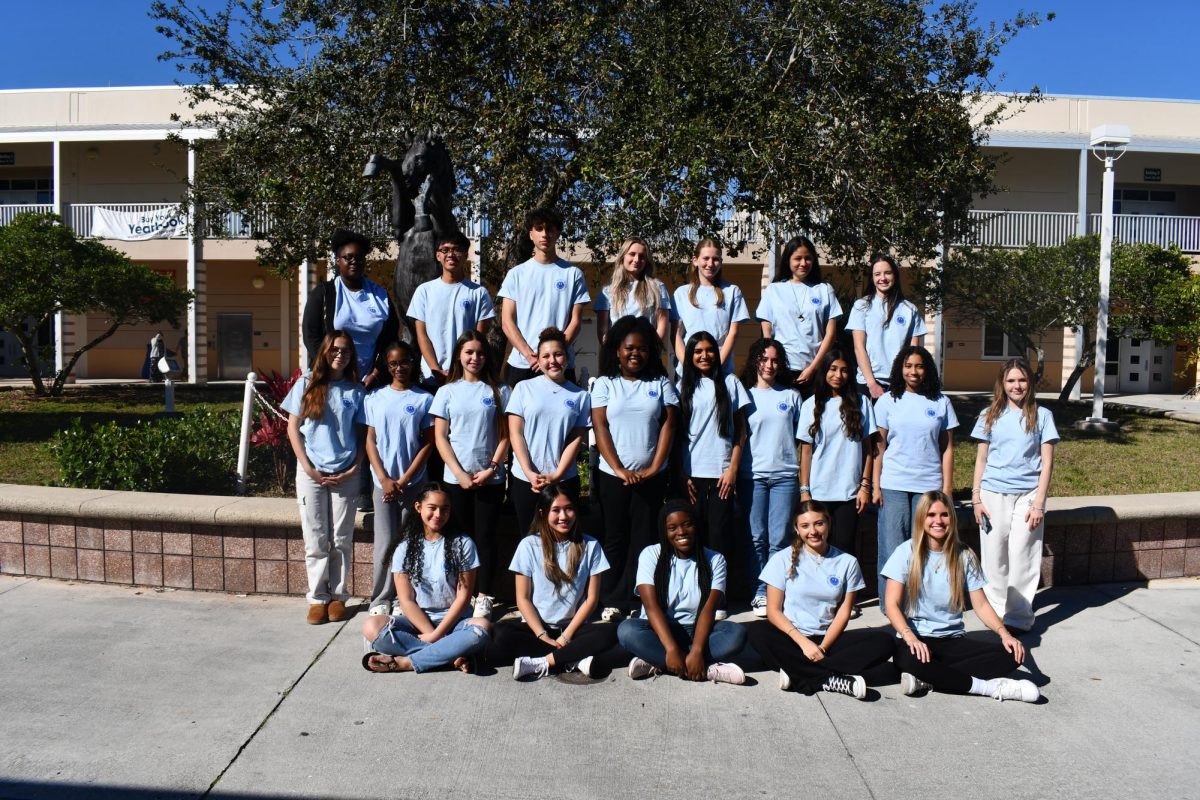American “K-wave” captivates teens
January 14, 2022
“Smooth like butter,” Korean pop culture has been able to slide into the hearts of American teens through music, heartthrob romance dramas, and the actions of their performers.
Bringing in millions of dollars of revenue for the South Korean entertainment industry, America has recently hopped on the “K wave,” captivated by the global sensation that is K-pop and K-drama. However many fans are unaware that before songs can hit the charts, performers must undergo a strenuous process to become international sensations.
Before eager teens can become “idols” or actors, they must audition for their part. Many times potential candidates are scouted out by big entertainment companies and invited to audition. Companies look for people who can dance, sing, play an instrument, or have the looks for the “idol” quota or the Korean beauty standards.
“With contracts spanning an average of seven years, an agency will assess a trainee’s talent, his or her ability to blend into a group, withstand the hardships of ‘idol life’, and avoid trouble,” said Patti Sunio, a writer for the South China Morning Post.
If selected, participants then go through a comprehensive training system. Entertainment companies like JYP, SM, YG, and BigHit have systems that train and prepare individuals for an idol life.
Out of all the factors, dancing is the most important aspect during recruitment and training process because K-pop groups are known for extravagant performances and stage presence.
“While singing can be faked with autotune, dancing can’t,” explained an article from Seoul Space magazine. “These performances are visually stimulating in ways that singing just can’t deliver.”
For many budding idols, training is a difficult time. Facilities are often far from away from home and trainees have to leave home and live far away from their parents. Moreover, trainees are usually not allowed to have phones or are limited to the amount of phone time they have.
While in these training periods, participants are taught to sing, dance, and learn new languages. Some trainees begin their training at such a young age that they have to learn to juggle a stressful lifestyle, balancing education and their career. Part of this involves conforming to Korean beauty standards. Having a slim figure, small face, large eyes, and pale skin are “important” qualities that companies make sure each trainee has. Also, going through dieting, staying up for long hours, and undergoing cosmetic surgeries are just some of the aspects that these trainees have to endure.
“[Trainees] assemble in a dormitory, with reduced communication with family and friends,” explained Jessica Wong from the Canadian Broadcasting Corporation. “Add in extreme diet regimes and gruelling training schedules strictly monitored by management companies. Drop any romantic relationships and any behaviour that might be deemed ‘unwholesome’. Mix vigorously in a country where outward appearance is paramount — and that has been dubbed the world capital for plastic surgery. Repeat.”
Even after all the training, groups are not guaranteed to become successful. Big groups like BTS, Blackpink, Got7, and NCT took a long time to build the platform that they have today. For example, the girl group, Brave Girls, debuted in 2011 but never had a huge following and were close to disbanding until their song Rolling, made in 2017, hit the charts late last year. This song expanded their following and they gained almost 13.5 million views on the song in 2021 alone.
“There’s a reason the Korean public have nicknamed Brave Girls ‘hope-dols’ – their dedication to putting in the effort, even when things weren’t going so well, makes it easier to have faith that, in your own life, you’ll be rewarded for your hard graft one day too,” said Rhain Daly in an article from the New Musical Express magazine.
Idol groups like 5urprise and SF9 are just like any other groups that make music and have a big fan base but are more known for their acting. With this concept, entertainment companies have built the K-drama industry.
Recently, K-dramas have been on the rise. With the new drama, Squid games, making a big hit all over the world, the demand for more seasons and even more dramas like it is high. According to VOX, the viewership of K-dramas “quadrupled from 2012-2013, growing from 2.5 million to 10 million… and currently sitting at 20 million.”
Furthermore, a 2019 study from Statistica Research Department found that “among 15 to 59 year olds in the United States who had experienced South Korean cultural content, 14 percent of respondents considered K-dramas to be very popular in the U.S. Most respondents (38.6 percent) considered them to be quite popular, while another 30.8 percent considered them to be popular among enthusiasts.”
Squid Games wasn’t the first Korean film that made it big in the states. The 2019 movie Parasite, directed by Bong Joon-ho, was an Oscar-award winning film and became the first foreign film to win in the Oscar award categories. Other recent dramas like ‘Start-up’, ‘It’s Okay Not to Be Okay,’ and ‘What’s Wrong With Secretary Kim,’’ helped Netflix gain a considerable number of watchers.
“Lately dramas have been becoming quite boring in the US,” said senior Arunima Deogade. “They are repetitive and there is nothing new. Seeing Korean dramas and how they are different from the states draw viewers in.”
K-pop fans don’t love their favorite idol groups just because of their music, but also because of their caring words and actions they show towards their fans. Bang Chan, leader of the group Stray Kids, not only makes music for fans that are struggling with life, but he also hosts a live on the app V Live, where he plays music for fans who can’t sleep and answers questions they need help with. Additionally, BTS made a whole album called “Love Yourself” to help fans who are struggling with insecurities and teach them to love themselves.
Even though idols try their best to be likable towards everyone, there are still people who don’t like them. These people are called “antis.” There have been many instances where antis will go to the extent to tell lies about certain idols, costing them their career.
People like B.I., the former leader of IKON, and Wonho, a former member of Monsta X were both kicked out of their groups because of rumors started by an anti. One couple was kicked out of not only their groups but their company because they were dating. The entertainment company CUBE let go of their idols E’dawn and Hyuna because they came out to their fans that they were in a relationship after an anti leaked evidence to the public.
Despite this, the Korean wave is just getting bigger, day by day. With more companies debuting idol groups and actors, the industry is continuing to expand and quickly becoming more popular all over the world.
To read more, please visit:
https://www.vox.com/culture/2018/2/16/16915672/what-is-kpop-history-explained



